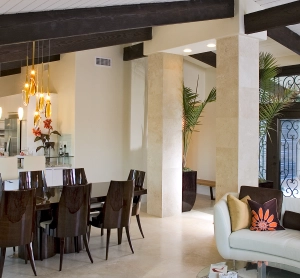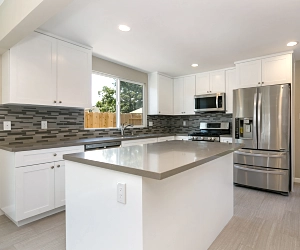
Being a landlord makes you liable for most of the things that happen in your investment. This includes damages to the premises and, to some extent, your tenets’ private property. Some of these damages and accidents may require large sums in replacement costs and court battles.
The best news is that you can pass most of these liabilities to an insurance company. You only need to sign the policy and pay the due premiums promptly. They will have your back whenever such misfortunes arise. Below are some of the insurance policies that you need to discuss with your providers.
Property Protection
Also known as the dwelling coverage, the property protections provide insurance protection for damages arising from fire, storm, strong winds, hail, ice, and much more. However, it does not cover losses that result from floods, so you have to apply for a flood protection policy.
The cover only protects you from specific types of damages. So, if you live in areas prone to earthquakes, hurricanes, or tornadoes, we advise that you contact your provider for acts of nature protection.
Flood Protection
Flood protection insurance policies fall under the federal government’s National Flood Insurance Program (NFIP). Such covers are a requirement alongside the Landlord’s insurance covers.
The policy may include coverage of replacement costs, building, and consent.
Landlord’s Liability Protection
Landlords’ liability protection policies cover legal fees and medicals expenses in case of injuries within the property. For example, a tenant or guest could sue for damages if they get injured by a broken tile or a tripping electric wire while they live on your premises. Some tenants could also sue for damaged property caused by faults and accidents in the property.
Paying for these damages could be costly. So, it would be best to cover yourself with a liability protection policy to avoid brushing shoulders with our tenant and their lawyers.
Loss of Rent Protection Policies
You could file for claims with this cover if your property becomes inhabitable due to fire and other accidents. When such disasters occur, your tenants will move out for some time to allow for repair. You do not receive rent during this time, but you need to pay for the mortgage and other expenses. So this is why you need a loss of rent policy cover.
Before applying for this insurance policy, it is always best to check on the company’s maximum rent payout loss. It will allow you to determine whether they will cover your mortgage costs or not.
Some policies also pay for tenant’s alternative accommodation during the repairs. However, they have imposed limits on the maximum claim.
Personal Property Coverage
This insurance policy will take care of the property you leave on the premises for day to day maintenance purposes. Some of the items you can cover include appliances like the lawnmowers. It is important to note that this policy only covers the Landlord’s property. Therefore, any tenants that wish to protect their items must apply for separate insurance covers.
As a landlord, you can always insist that your tenants apply for renter’s insurance. You can include this in the lease agreement to prevent any future disputes with the tenants.
Learn More About Insurance Policies From the Best in the Property Management Business
If you are a landlord in San Diego, don’t hesitate to contact Lofty Property Management and enjoy expertise-based services and advice that will help you make it in the industry. We’re at your beck and call for all your property management needs. Reach out to us today.



